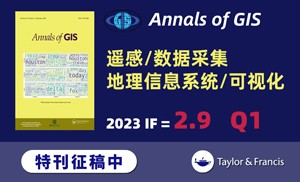当前位置:
X-MOL 学术
›
Water Resour. Res.
›
论文详情
Our official English website, www.x-mol.net, welcomes your
feedback! (Note: you will need to create a separate account there.)
The Economic and Environmental Benefits of Partial Leasing of Agricultural Water Rights
Water Resources Research ( IF 4.6 ) Pub Date : 2021-11-01 , DOI: 10.1029/2021wr029712 Rajendra Khanal 1 , Michael P. Brady 2 , Claudio O. Stöckle 3 , Kirti Rajagopalan 3 , Jonathan Yoder 2 , Michael E. Barber 1
Water Resources Research ( IF 4.6 ) Pub Date : 2021-11-01 , DOI: 10.1029/2021wr029712 Rajendra Khanal 1 , Michael P. Brady 2 , Claudio O. Stöckle 3 , Kirti Rajagopalan 3 , Jonathan Yoder 2 , Michael E. Barber 1
Affiliation
Balancing out-of-stream water demands and ecological instream flows is a difficult challenge in watershed-scale management. Many watersheds already experience acute and chronic water shortages during average runoff years and may face more frequent and severe droughts in some locations due to climate and demographic change. Water markets may mitigate the economic consequences of shortages, but their potential is limited by the prevalence of all-or-nothing irrigate-or-fallow crop water use strategies. Irrigation water generally provides diminishing returns for crop productivity, so it may be possible to reduce water application at the margin with only a small loss in crop production, creating water savings that could be leased for other uses. We explore this scenario by combining a crop growth and hydrology (CropSyst) model with an economic model of farm profits and water trading, and apply it to the Walla Walla Basin in Washington State. Our results suggest that partial leasing of water rights through a deficit-irrigation strategy could economically benefit annual crop growers while meaningfully increasing water availability for stream flow augmentation.
中文翻译:

农业水权部分租赁的经济和环境效益
平衡河外需水量和生态河内流量是流域规模管理中的一项艰巨挑战。许多流域在平均径流年份已经经历了严重和长期的水资源短缺,并且由于气候和人口变化,一些地方可能面临更频繁和更严重的干旱。水市场可能会减轻短缺的经济后果,但其潜力受到“全有或全无灌溉或休耕”作物用水策略的普遍影响。灌溉用水通常为作物生产力提供递减的回报,因此有可能在边缘减少用水量,而作物生产损失很小,从而节省了可以出租用于其他用途的节水。我们通过将作物生长和水文 (CropSyst) 模型与农场利润和水交易的经济模型相结合来探索这种情况,并将其应用于华盛顿州的 Walla Walla 盆地。我们的研究结果表明,通过赤字灌溉策略部分租赁水权可以在经济上使一年生作物种植者受益,同时有意义地增加可用于河流流量增加的可用水量。
更新日期:2021-11-16
中文翻译:

农业水权部分租赁的经济和环境效益
平衡河外需水量和生态河内流量是流域规模管理中的一项艰巨挑战。许多流域在平均径流年份已经经历了严重和长期的水资源短缺,并且由于气候和人口变化,一些地方可能面临更频繁和更严重的干旱。水市场可能会减轻短缺的经济后果,但其潜力受到“全有或全无灌溉或休耕”作物用水策略的普遍影响。灌溉用水通常为作物生产力提供递减的回报,因此有可能在边缘减少用水量,而作物生产损失很小,从而节省了可以出租用于其他用途的节水。我们通过将作物生长和水文 (CropSyst) 模型与农场利润和水交易的经济模型相结合来探索这种情况,并将其应用于华盛顿州的 Walla Walla 盆地。我们的研究结果表明,通过赤字灌溉策略部分租赁水权可以在经济上使一年生作物种植者受益,同时有意义地增加可用于河流流量增加的可用水量。









































 京公网安备 11010802027423号
京公网安备 11010802027423号